Dear WesleyNexus Colleagues,
As a time of reflection, Lent provides a reminder to take time for contemplating not just our current period, but also to reach back into our roots and recapture what is still relevant, recast in our hearts what needs revising and respectfully set aside what is no longer believable or acceptable. Reading the past with an eye on what is needed for this time.
In 1418–1427, Thomas a Kempis wrote The Imitation of Christ, a devotional text that had a significant impact on John Wesley and one that is worthy of reading during this Lenten period. I was talking to a friend who mentioned the esteem he gives to this text and recommended I follow through with my intention of reading it. With Lent approaching, I made a commitment to do just that, but with a twist. Reading this ancient pre-enlightenment text from the vantage point of our deeply scientific culture necessitates reading it with appreciation and criticism at the same time.
In the second devotional chapter, a Kempis challenges his reader with the following:
The greater and more complete thy knowledge, the more severely shalt thou be judged, unless thou hast lived holily. Therefore be not lifted up by any skill or knowledge that thou hast; but rather fear concerning the knowledge which is given to thee. If it seemeth to thee that thou knowest many things, and understandest them well, know also that there are many more things which thou knowest not. Be not high-minded, but rather confess thine ignorance. Why desirest thou to lift thyself above another, when there are found many more learned and more skilled in the Scripture than thou? If thou wilt know and learn anything with profit, love to be thyself unknown and to be counted for nothing.
That is the highest and most profitable lesson, when a man truly knoweth and judgeth lowly of himself. To account nothing of one’s self, and to think always kindly and highly of others, this is great and perfect wisdom. Even shouldest thou see thy neighbor sin openly or grievously, yet thou oughtest not to reckon thyself better than he, for thou knowest not how long thou shalt keep thine integrity. All of us are weak and frail; hold thou no man more frail than thyself.
In this text, we are admonished to be humble in our knowing and in our knowing to recognize the immense responsibility that comes with knowledge. “If it seemeth to thee that thou knowest many things, and understandest them well, know also that there are many more things which thou knowest not”. The COVID-19 pandemic, climate change, economic inequality and, in particular, how to come together as a quarreling yet united democracy demand that we struggle to know as much as possible while at the same time being willing to see the current limits of our knowledge. This wisdom applies to science, faith, and all human endeavors. With so many astounding advances in science and technology, we need awestruck humility more now than ever.
Albert Schweitzer was a man of science and a profound biblical scholar. In 1906, he wrote The Quest for the Historical Jesus in which he succinctly expressed the challenge of his time and ours:
“He comes to us as One unknown, without a name, as of old, by the lakeside, He came to those men who knew Him not. He speaks to us the same words: “Follow thou me!” and sets us to the tasks which He has to fulfill for our time. He commands. And to those who obey Him, whether they be wise or simple, He will reveal himself in the toils, the conflicts, the sufferings which they shall pass through in His fellowship, and, as an ineffable mystery, they shall learn in their own experience Who He is.”
May this Lenten season be one of productive self-reflection. Thanks go out to our generous contributors. We encourage you to share comments, articles and insights that will help us all weather these difficult times.
Rick, Jennifer, Maynard, and the rest of the WesleyNexus team
******************************************************************

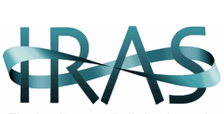
WesleyNexus sponsored a Webinar in collaboration with IRAS – February 15, 2021
The Video is now available here: https://youtube.com/watch?v=f1E5FeLKQ8w
This year WesleyNexus partnered with the Institute on Religion in an Age of Science to explore three different approaches to naturalism.
On President’s Day 2021, February 15, WesleyNexus sponsored its Seventh Annual Evolution Week-end in Maryland program through a collaboration with the Institute on Religion in an Age of Science (IRAS). It was the monthly IRAS webinar that has participants around the world – more than 280 persons registered for this event. The topic was Naturalism: As Religion, Within Religion, or Without Religion? It was a panel presentation, and the question mark in the title was important. Daniel Spiro spoke first about the naturalistic philosophy of the 17th century thinker Baruch Spinoza, who has been called both an atheist and a “God-intoxicated man.” Mr. Spiro explained how, once you make room for the element of transcendence in Spinoza’s philosophy, it can give rise to a conception of God that, while non-traditional, is nonetheless able to provide emotional sustenance. E. Maynard Moore, President of WesleyNexus, followed with thoughts concerning a “Christian naturalism,” though not an articulation that was mainstream. This view is gratefully aware of the richness of life and the resourcefulness of the natural world, but claims that the Christian does not look to nature for either meaningful explanation or ultimate fulfillment. Further, the claim was made that this view is compatible with the best thinking that characterizes modern science. Finally, Imad-ad-Dean Ahmad, PhD,offered his perspective of Islam as a system of naturalism within religion, in which God has chosen to create a natural universe that is real in a meaningful sense, and is knowable to the human mind to a degree that allows for some meaningful dominion over and stewardship of it, with humans appointed to be His vicegerent in it. The entire session is available through the IRAS website: www. IRAS.org – click open the link to the February 2021 program. Dr. Moore’s full presentation (not simply the summary version presented on the webinar), is available here.
******************************************************************
IRAS Monthly Webinar Series
March 25, 2021 @ 5:00 CDT
The Vital Breath: Saving Our Sacred Rainforests, with Dr. Audrey Kitagawa
It took millions of years for the rainforests to evolve, generating the complex, diverse life forms that exist in them. Rainforests help to form clouds that send rains that help to distribute fresh water. Rainforests are a major source of carbon dioxide absorption and help to provide the world with clean air. They provide food, habitat and essential resources for 80% of the world’s land-based wildlife. They protect the livelihoods and cultures of indigenous peoples. However, every year, about 18 million hectares are being destroyed. In just 40 years, it is estimated that one billion hectares have disappeared, which represent approximately half the world’s rainforests. At current rates, rainforests will vanish altogether before 2090. This Holocene extinction driven by people, means that we have become the earth’s most dangerous super predator.
In this webinar, you will learn about the UN Environment Programme (UNEP’s) Interfaith Rainforest Initiative that has mobilized communities of faith to come together as a moral voice to raise awareness about the dangers to the rainforests caused by humans, and the role which believers and non-believers alike can play in protecting and saving this most vital of resources for our continued existence.
Audrey Kitagawa was born and raised in Honolulu, Hawaii. She is a cum laude graduate of the University of Southern California, and a graduate of Boston College Law School. She practiced law in Honolulu for twenty-plus years, and upon retirement in 1996, she had a Martindale-Hubbell AV rating, the highest rating for professional and ethical excellence in the legal profession. Kitagawa is the head of an international spiritual family based in Hawaii. She is also Advisor to the World Federation of United Nations Associations. She serves as a member of many advisory boards and councils, including the Toda Institute for Peace and Global Policy Research, the Executive Council of the World Commission for Global Consciousness and Spirituality and for the Spiritual Caucus of the United Nations.
Registration and information: https://www.iras.org/webinar-series.html
******************************************************************
An evangelical scientist on reconciling her religion and the realities of climate change: an interview with Katharine Hayhoe
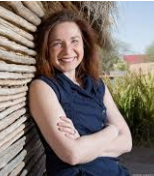
Climate change is a casualty to the political polarization that has been emerging in the United States over the last few decades. And why are we becoming so politically polarized? There’s a number of factors — the fact that we all have access to customized media today. So we’re all living in these echo chambers, or bubbles, where we just have our beliefs reinforced constantly. But it’s my opinion, at least, that it stems from fear. The world is changing so fast. It makes us think that maybe we’ll be left behind; it makes us afraid. It makes us want to just circle the wagons and tighten our boundaries and just hear from people who share the same ideas as we do and feel the same way that we do.
https://www.washingtonpost.com/lifestyle/magazine/an-evangelical-scientist-on-reconciling-her-religion-and-the-realities-of-climate-change/2021/02/26/f757d1c2-40b7-11eb-8bc0-ae155bee4aff_story.html
******************************************************************
Vaccines and fetal cells by Katelyn Jetelina
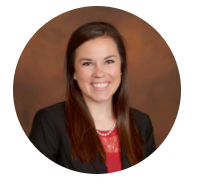
Assistant Professor, Department of Epidemiology, Human Genetics and Environmental Sciences School of Public Health, University of Texas Health Science Center at Houston
In adenovirus vaccines, cells that carry the deleted piece have ancestors from fetal issue. They do not use actual fetal tissue today. The science was developed more than 50 years and, since, has saved millions of lives.
https://yourlocalepidemiologist.substack.com/p/vaccines-and-fetal-cells
******************************************************************
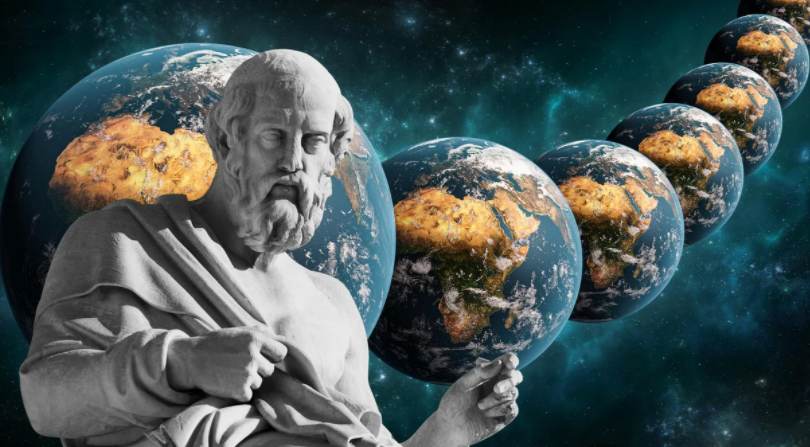
When does an idea die? Plato and string theory clash with data by Marcelo Gleiser
How long should one wait until an idea like string theory, seductive as it may be, is deemed unrealistic?
Marcelo Gleiser is a professor of natural philosophy, physics, and astronomy at Dartmouth College. He is a Fellow of the American Physical Society, a recipient of the Presidential Faculty Fellows Award from the White House and NSF, and was awarded the 2019 Templeton Prize. Gleiser has authored five books and is the co-founder of 13.8, where he writes about science and culture with physicist Adam Frank.
https://bigthink.com/13-8/evidence-string-theory
******************************************************************
Cern: scientists discover four new particles – here’s why they matter

March 3, 2021 8.42am EST in TheConversation.com
This month is a time to celebrate. Cern has just announced the discovery of four brand new particles at the Large Hadron Collider (LHC) in Geneva. This means that the LHC has now found a total of 59 new particles, in addition to the Nobel prize-winning Higgs boson, since it started colliding protons – particles that make up the atomic nucleus along with neutrons – in 2009. Excitingly, while some of these new particles were expected based on our established theories, some were altogether more surprising.
******************************************************************
Facebook post from Robert Edward Grant (2/28/2021)
When the mind’s eye rests on objects illuminated by truth and reality, it understands and comprehends them, and functions intelligently; but when it turns to the twilight world of change and decay, it can only form opinions, its vision is confused and its beliefs shifting, and it seems to lack intelligence.” ~ Plato
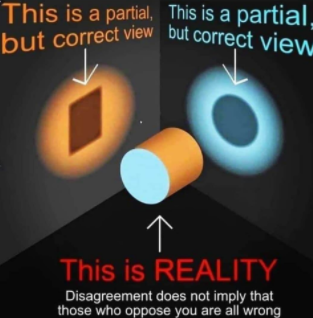
https://www.facebook.com/robertedwardgrant/posts/1571683716373882
******************************************************************
Weaving the Shadow: A Lenten Reflection by Patricia Adams Farmer
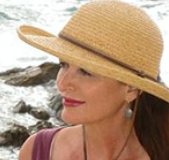
I have discovered that the best way to weave my own shadow-side into a wider beauty is to pay attention, listen deeply, and offer my shadow all the compassion and wisdom my better self has to offer. The same goes for dealing with the untended shadows of others. For the shadow within or without, the remedy always comes from the same place: that divine reservoir of compassion that also resides in each of us. For me, the spiritual discipline of journaling is the needle and thread of my inner work. Through writing, awareness begins to surface, and a dialogue with my wounded self can finally restore my best self.
https://www.openhorizons.org/weaving-the-shadow-a-lenten-reflection.html
******************************************************************
A sermon for Holy Week by E. Maynard Moore
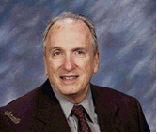
Overview
I will offer the devotion on Tuesday the 30th on the general theme of LAMENT in the midst of the pandemic. The scriptural reference will be Lamentations, dating from about 580 bce following the destruction of Jerusalem by the army of Nebuchadnezzar. I will reference selected verses from Chapter 2, and several verses from Chapter 5, and I will read these myself. The context for my message will likely focus on the Black experience in America, including some laments coming out of slavery, but also a word of hope. The point I will make is that lament is a proper theological response In the current context, recognizing the pain and anger felt by many people of color, and challenging the white majority to repent of our complicity in maintaining the status quo. I will ask Melissa for assistance with two hymns, the first being “Sometimes I Feel like a Motherless Child “ (perhaps Tiya can sing this??) and the second Hymn 707, “Hymn of Promise.”
The sermon can be found here: https://wesnex.org/wp-content/uploads/2021/03/MooreSermonForHolyWeek.pdf
